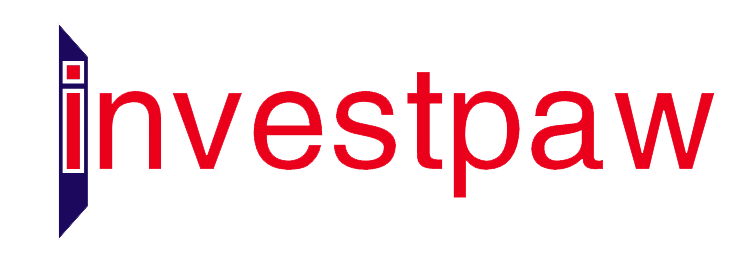
Enveloping an expansive scope of cash subjects—from adjusting a checkbook to building up a family spending plan and anticipating retirement—monetary proficiency shapes how we view and handle cash.
The charitable Money Management International, a supplier of monetary schooling and advising administrations, has made a 30-venture way to monetary wellness.1 To assist you with beginning, we center here around five monetary upgrades from that rundown, recommending a portion of Investopedia's best articles to kick off your excursion to monetary education.
1. Distinguish Your Starting Point
On the off chance that you don't have the foggiest idea where you are monetary, it tends to be trying to arrange for how to get to where you need to be one year from now, a long time from now, or a very long time as it were in retirement. That is the reason it is critical to distinguish your beginning stage.
Computing your total assets is the most ideal approach to measure both your present monetary wellbeing and your advancement after some time. Total assets are essentially the contrast between what you own and what you owe—i.e., the distinction between your resources and liabilities. It can give a reminder that you are off course or affirmation that you are progressing nicely.
"Why Knowing Your Net Worth Is Important" discloses how to ascertain total assets and gives tips to building them.
2. Set Your Priorities
Making a rundown of necessities and needs can help you set monetary needs. Needs are things you should have to endure: food, cover, essential dress, medical services, and transportation. Needs, then again, are things you might want to have yet that isn't required for endurance.
Knowing the contrast between the two, and being aware of the differentiation when settling on spending decisions, goes far toward accomplishing monetary health. You'll have to rank your necessities just as your needs to unmistakably characterize where your cash should go first. This applies to your present costs as well as to your objectives—which can thus fall into the classifications of needs and needs. Obviously, putting something aside for a tropical excursion falls into the needs segment, while reserving money for retirement is a positive need.
"Five Rules to Improve Your Financial Health" covers a quintet of wide individual accounting decisions that can help you set your needs and accomplish monetary objectives. It additionally pinpoints an assortment of regions where you might be losing cash without acknowledging it.
Individuals can fall into monetary difficulty when what they spend on needs doesn't leave enough to cover their necessities.
3. Archive Your Spending
A great many people could reveal to you how much cash they make in a year. Less could state how much cash they spend, less actually could clarify how and where they spend it. Probably the most ideal approach to sort out your income—what comes in and what goes out—is to make a spending plan or an individual spending plan.
Spending compels you to write down the entirety of your pay and costs, and this can be a basic instrument for assisting you with meeting monetary commitments now and later on. If that wasn't already enough, a financial plan can be a genuine shocker concerning spending decisions. Numerous individuals are astonished to discover exactly how much cash they are spending on unnecessary products and ventures.
"The Beauty of Budgeting" discloses why it's essential to build up a spending plan and gives direction to making your own yearly spending plan.

4. Pay Down Your Debt
A great many people have obligations—a home loan, car advances, Mastercards, hospital expenses, understudy loans, and so forth—and a portion of that obligation may really be beneficial for them. In any case, generally speaking, the obligation isn't acceptable, and what makes living with obligation so exorbitant isn't only the interest and charges; it's additionally the way that it can keep individuals from truly excelling with their monetary objectives. At last, it can turn into both monetary and enthusiastic channels for people and families.
While the best system is to try not to stray into the red in the first place (by settling on down-to-earth spending decisions and living inside your methods), that isn't generally conceivable. The vast majority can't attend a university without school credits, for instance. There are procedures to settle and get free from obligations you may have effectively procured.
"Uncovering Your Way From underneath Debt in 8 Steps" exhibits how you can deal with escape obligation—from recognizing any monetary slips up and checking your credit report to finding the cash to assist pay with bringing down your amassed costs.
5. Secure Your Financial Future
Because of critical monetary conditions the latest being hose brought about by the current COVID-19 pandemic–numerous individuals receive "I'll never resign" as a retirement plan. This methodology has a few significant blemishes.
To begin with, you can't generally control when you resign. You could lose the employment that you've held for quite a long time, endure an ailment or injury, or discover you need to really focus on a friend or family member—any of which could prompt a spontaneous retirement. Second, saying that you will not resign can simply be a pardon to try not to invest the time and energy to build up a genuine arrangement or it very well may be a sign you are in truly troublesome waterways you need to defy. Or then again perhaps you essentially don't have the foggiest idea how to design.
Becoming familiar with your retirement alternatives is a fundamental piece of getting your monetary future. Regardless of whether you can't save a lot, each piece makes a difference. Whenever you've built up an arrangement, you could wind up settling on better spending decisions, given that you have an objective as a main priority.
"The Best Retirement Plans" covers an assortment of plans (counting IRAs and boss plans), commitment and pay limits, organization matches, and different elements to think about when making arrangements for your retirement.
The Bottom Line
Regardless of whether you didn't master cash abilities at home or school, it's never past the point where it is possible to make up for the lost time. Be proactive about building up your monetary proficiency. Realigning your concentration and changing your accounts presently will have a significant effect on your future. These five articles will assist you with getting the way to monetary wellbeing.





